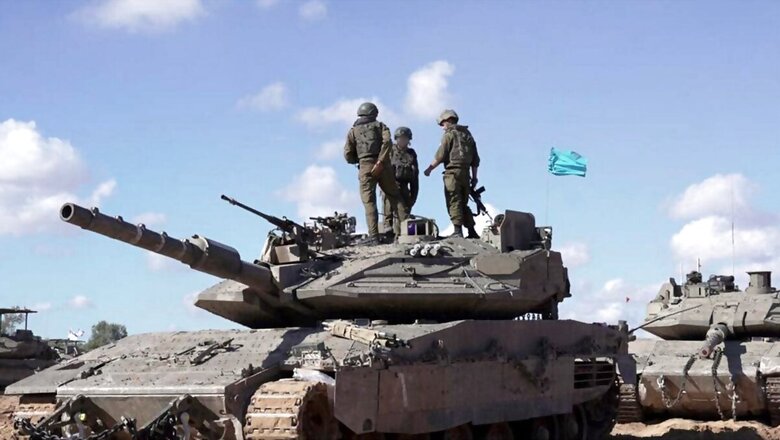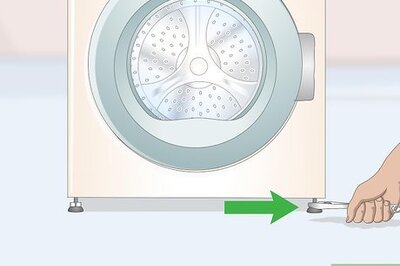
views
The International Court of Justice (ICJ) on Friday ordered Israel to “immediately” cease its military operations in Rafah in southern Gaza.
This landmark ruling is expected to increase international pressure on Israel, which has been embroiled in a conflict with Hamas since the group’s attack on October 7.
The ICJ ruled that Israel must “immediately halt its military offensive, and any other action in the Rafah governorate which may inflict on the Palestinian group in Gaza conditions of life that could bring about its physical destruction in whole or in part.”
The court also called for the immediate release of all hostages held by Palestinian militants. “The court finds it deeply troubling that many of these hostages remain in captivity and reiterates its call for their immediate and unconditional release,” the ICJ stated.
Earlier today, the Israeli military reported retrieving the bodies of three hostages in an overnight operation in the northern Gaza Strip’s Jabalia. These hostages had been abducted during the October 7 attack.
Open Rafah crossing for humanitarian aid
The court’s rulings are legally binding but lack direct enforcement mechanisms. The ICJ also ordered Israel to keep open the Rafah crossing between Egypt and Gaza, which Israel had closed at the beginning of its assault on Rafah.
“Open the Rafah crossing for unhindered provision at scale of urgently needed basic services and humanitarian assistance,” it added.
The ICJ’s order comes ahead of separate meetings in Paris later on Friday, where the CIA chief and Israeli representatives will meet with French President Emmanuel Macron and the foreign ministers of four key Arab states to discuss the Gaza conflict.
The Israeli government has not yet responded to the ruling, with Prime Minister Benjamin Netanyahu expected to discuss it with ministers soon.
Israel argued before the court that ceasing military activities would enable Hamas extremists to act freely and prevent the Israeli army from rescuing hostages taken during the October 7 attack.
In January, ICJ judges had instructed Israel to prevent death, destruction, and genocide in Gaza, but did not order an end to the military offensive. In March, the court mandated Israel to take measures to improve the humanitarian situation.
Arrest warrants against Netanyahu
On Monday, ICJ’s chief prosecutor Karim Khan requested arrest warrants from ICC judges for Netanyahu, Defence Minister Yoav Gallant, and three top Hamas leaders—Yahya Sinwar, Mohammed Deif, and Ismail Haniyeh—on charges of war crimes and crimes against humanity in Gaza and Israel.
Although Israel is not an ICC member, meaning Netanyahu and Gallant do not face immediate prosecution, the threat of arrest could restrict their international travel.
Prime Minister Netanyahu is also under domestic pressure to end the conflict, sparked by Hamas-led militants who killed 1,200 people, mostly civilians, and took about 250 hostages in an attack on Israel. Thousands of Israelis have participated in weekly protests, urging the government to secure the hostages’ release, fearing time is running out.
Despite the ICJ ruling, the court lacks the power to enforce its decisions, as demonstrated by Russia’s disregard of a 2022 ICJ order to halt its invasion of Ukraine.
Israel indicated it would likely ignore the ICJ’s order. “No power on earth will stop Israel from protecting its citizens and going after Hamas in Gaza,” the country’s government spokesperson Avi Hyman said on Thursday.
(With inputs from agencies)
Stay informed with the Iranian President News Latest Updates..


















Comments
0 comment